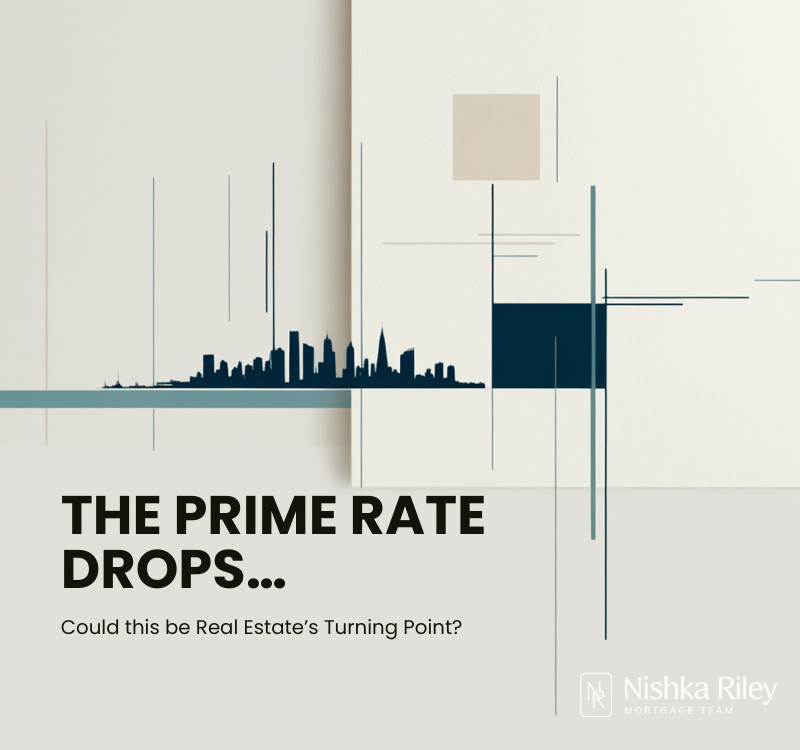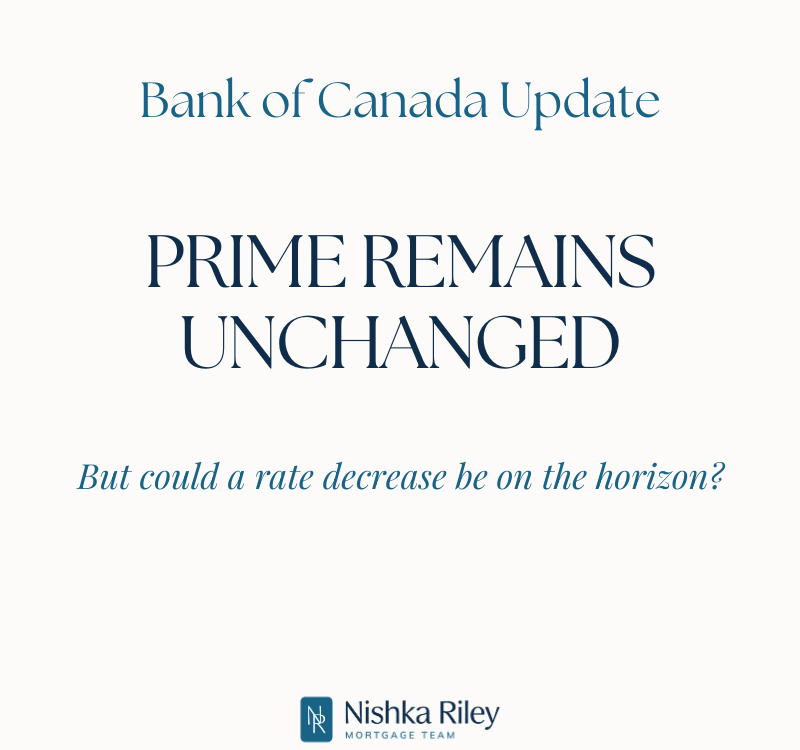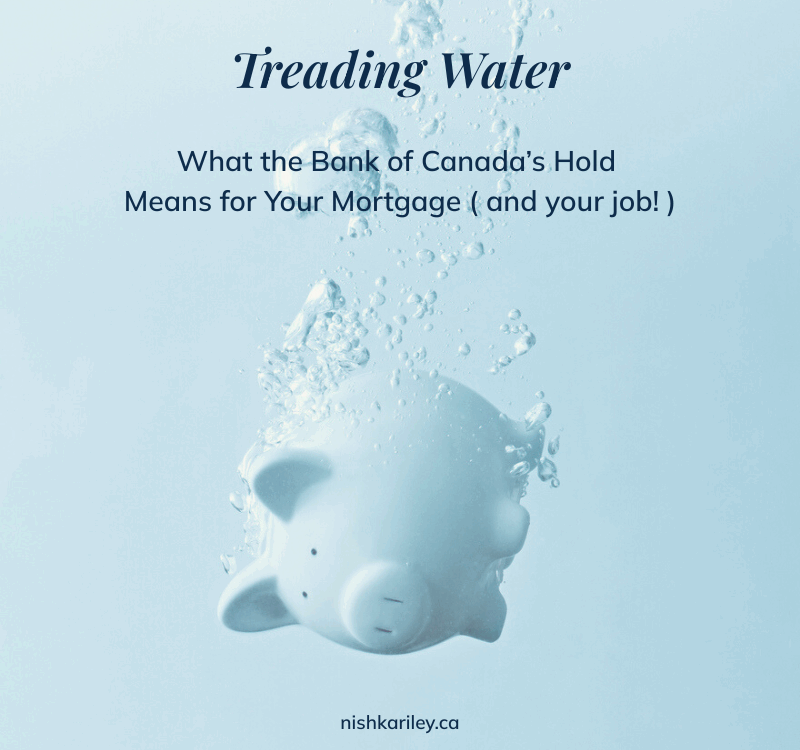
Mortgage Rate Update – The Rate Grinch Strikes Again
December 7, 2022
Stampede! NORTH VANCOUVER INVESTOR ALERT
February 22, 2023Happy New Year(s)!
In this first post of 2023, I’d like to wish you all a wonderful year! I know 2022 was stressful for some, but reading between the lines of today’s Bank of Canada press release, it looks like sunnier times are ahead. On that note, let’s jump into today’s mortgage rate update.
Though the Bank of Canada (BOC) governor Tiff Mackelm ( Tiff ) raised rates today by 25bps, his closing remarks in today’s press release hinted at the possibility of this being the final rate increase. Albeit those positive comments were buried between stern words of continuing the fight against inflation, nonetheless, they were there.
So what’s got Tiff feeling so optimistic? Here is a summary of the top points:
Inflation has dropped from 8.6% to 6.3%
With the decline in energy costs and durable goods leading the charge, Tiff is getting confirmation that things are heading in the right direction.
China is back:
Now that China seems to have walked away from its Zero COVID policy, the supply chain bottlenecks will loosen up, easing the inflationary pressure of most manufactured goods.
Interest rate increases from 2022 are taking hold:
The BOC hasn’t explicitly said this, but as mentioned in my previous blog posts, it takes about 8 months to 1 year for interest rates to actually take hold and have an impact on the market. We are just past the eight month mark on the surprise 1% increase we saw in July 2022.
Immigration figures are strong:
People who are new to Canada tend to fill in the gaps of the lower end labour market until they get their footing. Be that learning the language, education in their chosen field, or permanent residency. I can speak from experience on this one, because I immigrated from Poland in 1989. Though I was in my early 20s, it took me a couple of years to get my papers, and from that point, another three years to get my first job in the financial industry. During that time, I worked all sorts of entry level jobs – the type employers are now having a tough time finding people for. My point is there is a natural evolution in new Canadians progressing up the job ladder. The federal government’s closed border COVID policy created a vacuum, which hopefully will be filled in 2023, reducing the labour shortage.
So if Tiff is so optimistic, why are his words so stern? There are a couple of key factors here.
The resilient consumer:
Though mortgage interest rates have risen, the majority of Canadians still have a mortgage with an interest rate lower than 3%. Here in the Vancouver area, mortgage payments, on average, make up 60% of after-tax income. That means only 40% of household budgets have been impacted by inflation, and I could argue of that 10% of household budget costs are fixed ( life insurance, cell phone, cable ). Though this resilience is a thorn in Tiff’s side, it means that people in the GVRD have the financial strength the weather the storm – which is good news for real estate prices.
Global inflation and the Ukraine :
As mentioned before, oil prices will return to normal when this war ends. And because oil is a massive part of our economy, from manufacturing goods to transporting them, once the price is back to normal levels, a big chunk of wind will be taken out of inflation’s sails.
These two items, along with the tight labour market, are the last items that keep Tiff up at night. Once they go, he’ll give the “coast is clear” signal.
The bottom line – what does this mean for mortgage rates?
Expect 2023 to be the year of the quick close special. The banks lost a ton of money in 2022 by holding ultra-low interest rates for pre-approvals and transactions with 120 days to completion. With a quick close special ( a mortgage that funds within 60 days ), that cost is eliminated. Since BOC’s announcement, three lenders have launched specials that are 1% lower than the majority of the big six bank rates.
Don’t expect prime to decrease in 2023. The BOC is not going to rush into lowering rates, and I would bet they are willing to risk a recession to ensure inflation is gone. What does that mean for variable clients? If you have a discount on your variable of prime minus 0.5% or less, you might want to roll into a 2 or 3 year term. For those with a discount greater than 0.7%, your rate is already cheaper than the bank 2 year term, so it’s best to hold on for the rate decreases in early 2024.
Don’t expect to see sub 3% mortgages until early 2025. In my 22 years of experience, 3.5% is the historical average for a 5 year fixed term. Anything less than that means the BOC is trying to stimulate the economy with lower rates. It’s going to take time for the current fixed interest rate to unwind from its current highs, but having said that, I expect that we’ll see 3.99% by the end of 2023, and 3.25% by mid 2024.
Keep in mind that the BOC sees the neutral rate ( the rate that doesn’t stimulate or slow the economy ) at 2.5% to 3%, and since 2008 we have been below the 2.5% figure. This is the first time 14 years the BOC has broken out of fiscally stimulative policy. So it stands to reason that they will do their best not to go back there. With that in mind, expect gradual rate decreases – think of it like a teenager testing parental boundaries.
All in all I would expect the theme of 2023 to be “Returning to Normal”.
If you have a maturity in the first half of 2023 or if you are thinking of buying a home, please give me a call. A 20 minute conversation today, could save you thousands tomorrow!

The next Bank of Canada meeting is March 8th, 2023
Did you Like this post? Then you’ll Like my Facebook Page. It’s filled with current news on what’s going on in the world of real estate.




